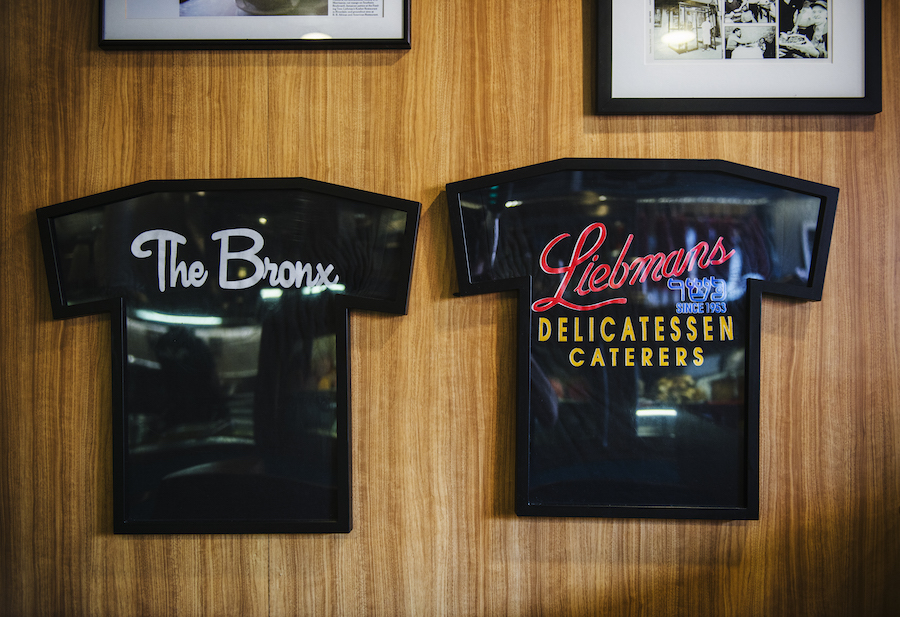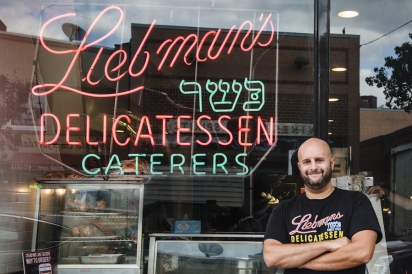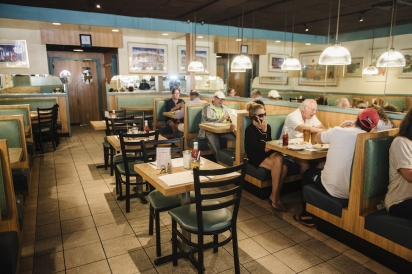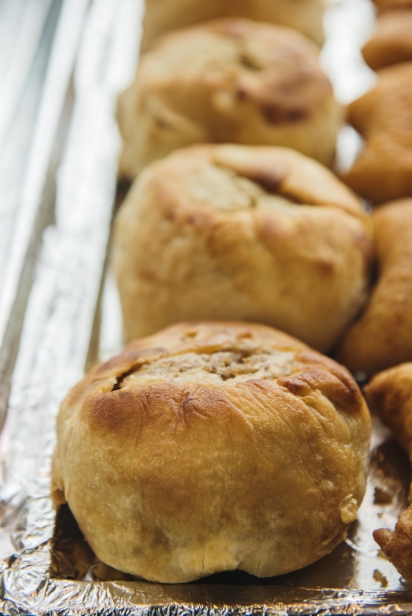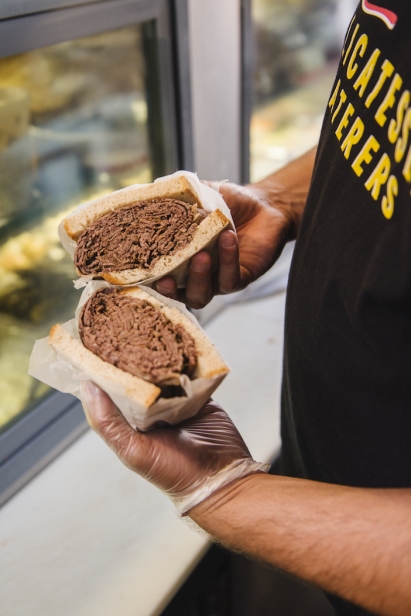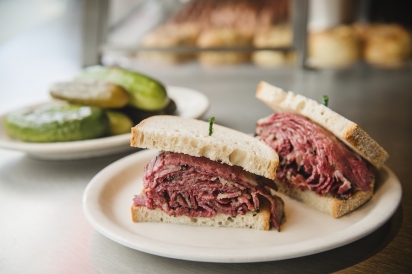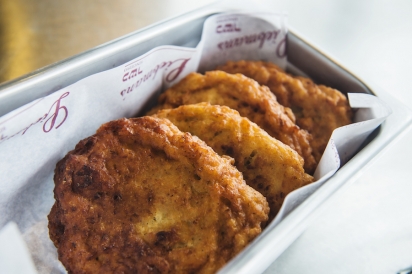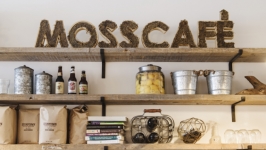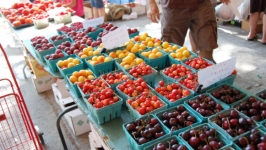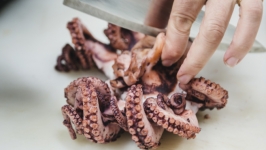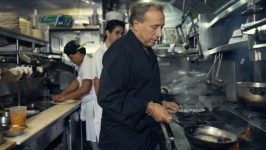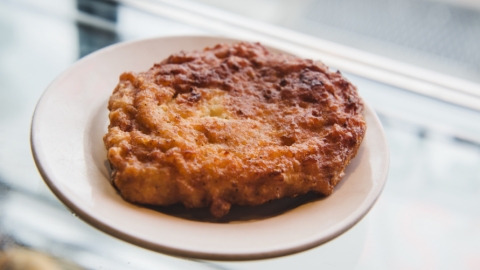Talking Latkes with Liebman’s
A hot-pink neon sign spelling out Liebman’s Kosher (in Hebrew) Delicatessen lures you into nostalgia. As you enter the quaint deli, walking past flyers for community events and trays of cole slaw, pickles, chopped liver and many more chilled delights, you are stepping back into history.
Believed to be the longest-running business in Riverdale, the 63-year-old Liebman’s is one of only remaining two delicatessens (t he other, Loesser’s opened in 1961) hailing back to a Jewish Bronx of decades past. Slide into a shiny mint-green booth surrounded by walls adorned with pastel-colored paintings of Jerusalem and bite into a piece of the past in the form of a hefty pastrami sandwich that hasn’t changed in decades.
After his dad passed away in 2002, Yuval Dekel took over the business his family had run since 1980. Having raced around the deli since he was 3 years old, he had a sense of the restaurant’s history. “It’s just a really traditional, authentic, old-school kosher deli,” Dekel said on a quiet afternoon after the regulars had loaded up on their cured meats and cold salads. “That’s probably what people like: We haven’t really changed much. We pride ourselves on keeping things in a time capsule here.”
“People say it’s identical to what they remember, even if they haven’t been in 20, 40 years,” Dekel said. “They’re taken aback by walking in and seeing that it’s the same.” Not much has changed food-wise or service-wise in the 14 years he’s headed up Liebman’s. How come?
“We’re pretty stubborn,” he laughed. “The rules that apply to newer establishments just don’t apply here. We just continue doing what we do and cross our fingers and hope people still appreciate it.”
“The customers tend to expect a certain quality of food and flavor,” Dekel said. “I’ve attempted to change a few things without relatively good success just because people expect a certain product. Even if I thought I was improving it, they would think otherwise.” For example, they tried to switch up Liebman’s potato salad a few years ago: Instead of buying it from kosher food producer Sally Sherman he wanted to “take some pride and make our own, like everything else. It didn’t go over well.”
Keeping everything from the food to the service the same is a challenge in the ever-changing landscape of New York City, but having grown up in the business and logged some years in Manhattan at bakeries like Amy’s Bread and Le Pain Quotidien, he was up for the challenge. “I knew what sorts of things were important to my dad, so I tried to focus on that and, with time, develop my own methods,” he said. One change that’s gone over well: switching the chopped liver from beef to chicken, a more traditional kosher deli ingredient than beef.
Despite the minor menu tweaks, he says the biggest change has been with the clientele. As the neighborhood has diversified and sects of Jewish people have become more observant (and therefore deem Liebman’s not kosher enough because it remains open on Saturdays), Liebman’s attracts a more varied neighborhood crowd. Dekel estimated that about 60 percent of the customers are Jewish, while the rest have developed a New York taste for matzo ball soup and pastrami on kosher rye. “It’s awesome; we love that,” he said.
As his two young kids grow up in the same restaurant where he spent much of his childhood, fond memories of decades past are reignited, and Dekel wants to continue the traditions with the next generation.
“It’s pretty cool to have my kids here. When you witness something come full circle it certainly gives you a lot of perspective,” he said. “Eventually I’d like for them to come and help out, start by making little mustard containers. I started making the knishes with Chef [Marcello Peña] side by side … I don’t know if I was helping or hindering but it’s a good memory.”
As Hanukkah approaches, 600 pounds of potatoes and a fair amount of onions are ordered at Liebman’s, a hot spot in the neighborhood come the holiday season.
In addition to a latke the size of a Frisbee, fried up using a recipe that hasn’t changed for as long as he can remember, the deli also serves jelly doughnuts sourced from a local bakery for the eight-day celebration of all things fried.
On the menu all year round, Dekel sites this cultural cuisine as an important facet to Liebman’s continued success.
“The concept of kosher delis culminated out of a need for immigrants to re-create the foods that they had back in Europe,” he said. “As the Bronx has changed, the delis have disappeared. We find that a lot of people come here with the desire to experience the nostalgia of what used to be, something that was around everywhere in the Bronx. We’re just happy to be embraced in the Bronx.”


